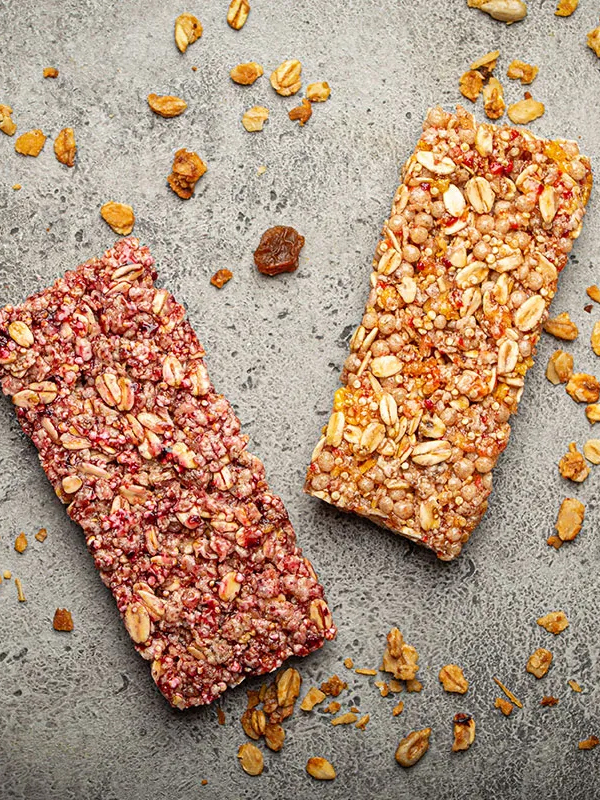Protein in 300 Gm of Chicken
Chicken - It has seen a significant rise in health consciousness, fitness trends, and protein-rich diets over the past decade.

Protein bars have gained immense popularity in USA, especially among fitness enthusiasts, weight watchers, and busy professionals looking for a quick, nutritious snack. But are protein bars good for weight loss? This question has sparked debates in the health and fitness community. While some swear by them as a convenient and healthy snack, others argue they are nothing more than glorified candy bars.
In this detailed guide, we will explore the role of protein bars in weight loss, their benefits, and drawbacks, and how to choose the best one suited for your health goals. Let's dive in!
Protein bars are convenient, ready-to-eat snacks that provide a good amount of protein, often combined with carbohydrates, fats, fiber, and essential vitamins and minerals.
They come in various flavors and compositions, catering to different dietary needs such as weight loss, muscle building, or meal replacement.
Weight Loss Bars – Low in calories and high in fiber and protein to keep you full.
Meal Replacement Bars – Designed to provide balanced nutrition, often containing essential micronutrients.
Energy Bars – High in carbs, suitable for athletes needing quick energy.
Keto-Friendly Bars – Low-carb, high-fat bars for those following a ketogenic diet.
Yes, protein bars can aid weight loss if they are low in sugar, high in protein and fiber, and consumed in moderation as part of a balanced diet.
Protein plays a crucial role in weight management. Here’s how:
Boosts Metabolism – Protein requires more energy to digest, leading to higher calorie expenditure.
Reduces Hunger – It helps regulate hunger hormones, reducing appetite and preventing overeating.
Maintains Muscle Mass – Protein prevents muscle loss when losing weight, ensuring better body composition.
Protein bars can support weight loss if they:
Replace high-calorie, unhealthy snacks – Choosing a protein bar over deep-fried samosas or sugary biscuits can make a difference.
Are consumed in moderation – Eating them occasionally as a snack, not a meal replacement, prevents calorie overconsumption.
Are rich in fiber and low in sugar – High fiber keeps you full, while low sugar prevents insulin spikes and fat storage.
While protein bars can be beneficial, they are not a magic bullet for weight loss. Here’s when they can be counterproductive:
High Sugar Content – Many protein bars contain added sugar, artificial sweeteners, or syrups, leading to weight gain rather than loss.
Excess Calories – Some protein bars have as many calories as a meal, making them unsuitable for weight loss if consumed mindlessly.
Highly Processed Ingredients – Many bars contain preservatives and artificial flavors, which may not be ideal for long-term health.
Misleading Labels – Terms like “healthy,” “low-fat,” or “energy-boosting” can be misleading. Always check the nutrition label.
When selecting a protein bar, consider the following factors:
Protein Content – Aim for at least 10-15g of protein per bar.
Low Sugar – Prefer bars with less than 5g of sugar.
Fiber-Rich – Helps in digestion and satiety (at least 3-5g per bar).
Calorie Count – Should not exceed 200-250 calories if used for weight loss.
Healthy Ingredients – Prefer bars made with nuts, seeds, whey or plant-based protein, and natural sweeteners like dates or honey.
Some popular brands in India that offer protein bars suitable for weight loss include:
✔ RiteBite Max Protein
✔ Yoga Bar Protein Bars
✔ The Whole Truth Bars
✔ MuscleBlaze Protein Bar
✔ Snackable Protein Bars
As a Mid-Morning Snack – Prevents unhealthy cravings before lunch.
Pre-Workout Snack – Provides energy for workouts without making you feel too full.
Post-Workout Recovery – Helps muscle recovery and repair after exercise.
On-the-Go Breakfast – A better alternative to skipping breakfast, but should not be a daily habit.
Evening Hunger Fix – Instead of reaching for fried snacks, a protein bar can be a healthier alternative.
Protein bars should not replace whole foods but complement them. A balanced Indian diet for weight loss should include:
Whole grains (roti, brown rice, millet)
Lean proteins (dal, paneer, fish, eggs, tofu)
Healthy fats (nuts, seeds, ghee in moderation)
Fiber-rich vegetables and fruits
Hydration (water, buttermilk, herbal tea)
If store-bought protein bars don’t fit your budget or preference, you can make your own!
1 cup rolled oats
½ cup peanut butter
¼ cup honey
¼ cup protein powder (whey or plant-based)
¼ cup chopped nuts (almonds, walnuts)
2 tbsp flaxseeds
Dark chocolate (optional)
Blend oats into a fine powder.
Mix peanut butter, honey, and protein powder in a bowl.
Add chopped nuts and flaxseeds.
Spread the mixture in a tray and refrigerate for 2-3 hours.
Cut into bars and enjoy!
Protein bars can be a helpful addition to your weight loss journey if chosen wisely and consumed in moderation.
Look for bars with high protein, low sugar, and natural ingredients. However, they should not replace whole foods like dal, vegetables, and nuts.
A balanced Indian diet, combined with regular exercise and mindful eating, is key to sustainable weight loss.
Are you ready to include protein bars in your diet? Try different options, read labels carefully, and enjoy them as part of a well-rounded, nutritious lifestyle!
Chicken - It has seen a significant rise in health consciousness, fitness trends, and protein-rich diets over the past decade.
Almonds are one of the most popular nuts in India, known for their rich taste and impressive health benefits.
Cheese - When it comes to the rich and diverse world of dairy products in India, one name that immediately comes to mind is Amul.